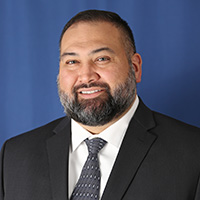As the former chief operating officer and chief information officer for a hospital, I always value the experiences and lessons learned from our partners across Indian Country. I know there is always a difference between planned and actual when it comes to IT implementation, and it’s what I sought to understand at our November tribal consultation and urban confer sessions.
At the sessions, we heard from our partners at the Muscogee Creek Nation Department of Health, American Indian Health & Services Santa Barbara Urban Program, and the Alaska Native Tribal Health Consortium on their experiences implementing an electronic health record system. Our partners provided insights on their successes, challenges, and lessons learned throughout their respective EHR deployments. You can find the November presentation slides on the IHS website.
The information shared by our partners validated much of what IHS is doing to support the EHR implementation, as well as highlighted a few points for consideration as we move forward with our Health IT Modernization Program. As I listened, I was excited to hear presenters stress these five key points which IHS will reflect on for the new EHR solution and the modernization.
- One complete medical record across multiple service areas provides better continuity of care for our patients
- An inclusive governance structure supports informed decision-making around the EHR implementation
- Delivery of a commercial-off-the-shelf EHR solution offers options to provide consistency across the network
- Develop consistent communications with partners
- Training opportunities and materials should always be available
I appreciate the presenters’ openness and candor as it fostered a true learning environment for all in attendance. Collaborative experiences like this are vital to the modernization as we learn from our partners and health care professionals on how to best deliver high-quality care for our patients.
In addition to the keynote topics, Dr. Howard Hays, IHS chief medical information officer, provided an update on the modernization’s efforts to secure the required expertise to design, set up, train, and maintain the IHS enterprise EHR solution. Dr. Hays pointed out that IHS released requests for proposals for change management and project management expertise which IHS set aside for American Indian/Alaska Native owned businesses.
Finally, IHS has shared how partners can participate in upcoming EHR vendor demo watch parties to provide feedback on proposed vendors’ EHR demos as part of the selection process. In these vendor demo watch parties, we will walk through five specific scenarios to evaluate the usability of each potential EHR vendor’s product.
Since the start of our Health IT Modernization Program, I’ve stressed the collaborative nature of our process, and how our partners are essential to its success. The discussions at the November tribal consultation and urban confer sessions and upcoming vendor demo watch parties are just two more instances where we’ve come together to share, listen, and learn in order to create technology-based health care solutions that support quality care across Indian Country for generations to come - and I look forward to more.
Related Content:



